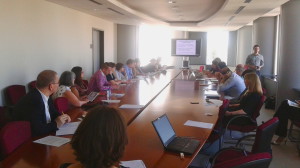Lifetime extension of nuclear reactors in Ukraine
12 of Ukraine’s 15 reactors were designed to finish operations before 2020. Ukraine’s national energy strategy for 2030 envisages that all of the country’s 15 nuclear reactors will have their lifespan expanded. The Safety Upgrade Programme (SUP) includes safety modernisation measures for all 15 nuclear reactors in Ukraine and is partly necessary for the reactors’ for lifetime extension, as an independent expert’s review has shown.
The EBRD and Euratom are co-financing the EUR 600 million Upgrade Program. However, the reactors 1 & 2 at Rivne have already received a lifetime extension of 20 years beyond their 30 years design lifetime without the implementation of a proper environmental impact assessment (EIA) and a transboundary public consultation process in Ukraine and in neighboring countries, as prescribed by the Espoo and Aarhus conventions, both signed and ratified by Ukraine and all EU countries. Although such conduct has been assessed by the Espoo Convention implementation committee as a violation of this international treaty, Ukraine does not seem to be approaching the upcoming lifetime extensions differently.
A joint letter from MEPs
Since this is the matter of European safety, adherence to EU, international rules and transparency, Members of the European Parliament (MEPs) are convinced that all EU policy makers should be informed and take action. At a meeting with campaigners from Nuclear Transparency Watch (NTW) and CEE Bankwatch Network on 1st July 2015 in the European Parliament, MEPs from six political groups have decided to join the call for freezing the loan proceedings until a proper transboundary EIA and public consultation are carried out. A joint letter signed by 27 MEPs was sent the same day to representatives of EBRD and Euratom.
NTW Is pleased to have an important number of MEPs signing the letter. The challenge to face nuclear issues is not only technical, it is also political. European Parliament’s role in the decision-making process under the Euratom Treaty is limited since it has only consultation powers. Nevertheless, it has consistently put emphasis on the importance of improving safety and has a crucial role to enhance European cooperation and transparency.
A reply from the European Commission
To this letter, MEPs have received a reply from the Vice-President of the European Commission, Mr. Katainen, one of the four addressees.


You must be logged in to post a comment.